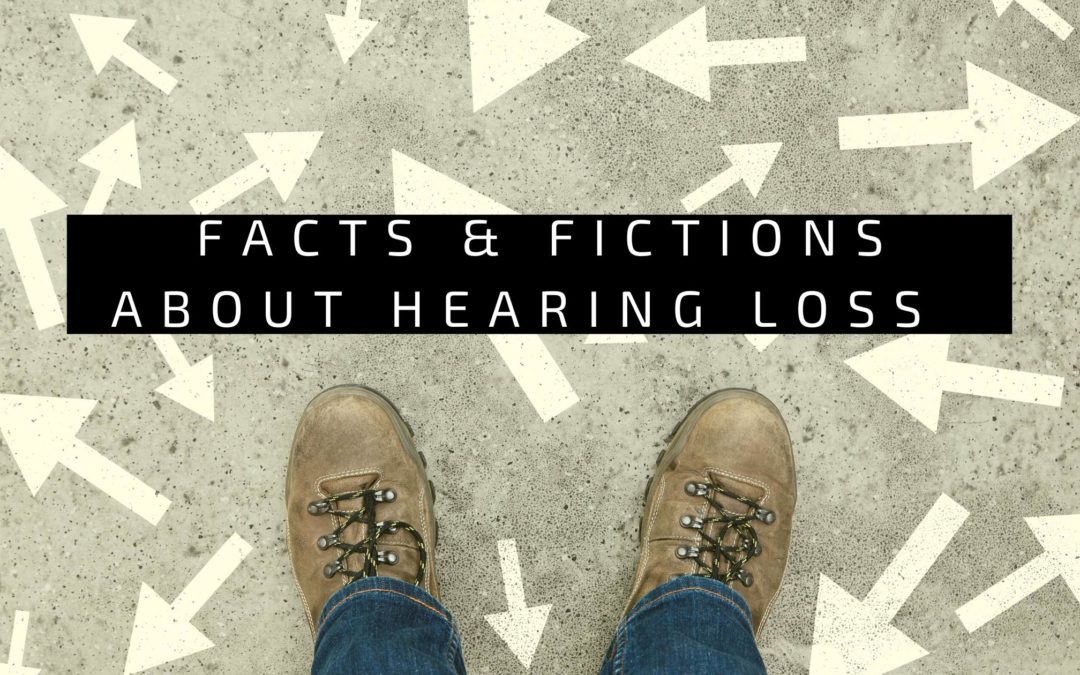Hearing loss affects one in eight people in the US alone, equaling 13 percent, or 30 million of all US citizens 12 or older. This means that it’s likely that you or someone close to you will have to deal with this issue now or in the future. The more you can understand about hearing loss, the better you will be equipped to avoid injury to your ears and deal with hearing loss if and when it develops.
There are a lot of misconceptions around hearing loss that can complicate this process. While Hearing loss is one of the most common health conditions currently affecting people, it is often not openly discussed. This can cause people who could genuinely receive benefits of treatment to avoid or put it off due to societal stigma and shame. When hearing loss is not addressed it can cause rifts in relationships, affect professional careers, cause lack of confidence, chronic depression as well as serious health complications such as dementia and an increased risk of hospitalization. Here are some common misconceptions about hearing loss and facts to counter them:
Hearing Loss Only Affects the Elderly
Hearing loss is commonly associated with old age for good reason. Presbycusis, also known as age-related hearing loss, is the most common cause of hearing loss, affecting one in three people over 65 and half of those over 75. However, it can be dangerous to believe that only the elderly are affected. There are many other causes of hearing loss, besides old age, such as exposure to ototoxic chemicals, head trauma and infection. One of the most common causes of hearing loss in younger generations is exposure to loud noise. The NIDCD reports that Nearly 15% of adults (aged 18 and over) report some trouble hearing. In addition, approximately 2 to 3 out of every 1,000 children in the U.S. are born with some degree of hearing loss in one or both ears.
Hearing Loss is Not a Serious Condition
Hearing loss reduces an individual’s ability to absorb and process speech and sound. This can cause exhaustion as people struggle to follow conversations and hear distinct words and sentences. Over time, miscommunications can cause huge rifts in relationships at home and at work. This can affect earnings at work and add to feelings of isolation and depression. Hearing loss often goes unaddressed for years and within that time lack of connection can cause people to feel less connected, less assured and exhausted by even casual conversation. It is all too common for people to shy away from social situations which can lead to chronic loneliness. Researchers find that loneliness has a serious impact on a shortened life expectancy which is on par with smoking 15 cigarettes daily.
Speaking Loudly Solves the Problem
Many times, people with hearing loss find that if people speak up, they can hear better, but this is not actually addressing the problem. It is an exhausting ask for the people in your life to constantly be expected to shout at you to understand. This will undoubtedly cause more resentment in your relationships. In addition, shouting compromises the quality of sound, with many important tones and consonants still coming through distorted or unintelligible.
Hearing Loss is Curable
Sensorineural hearing loss occurs when tiny hair-like cells in the inner ear, which send sound information to the brain, become damaged or destroyed. Currently, there is no way to repair stereocilia, making this most common type of hearing loss curable. However, this does not mean that hearing loss is not treatable. The most common treatment for hearing loss is hearing aids, which amplify the sounds or tones which you struggle with so you can follow conversation and stay more alert in your environment.
Hearing Aids Are Cumbersome
Many people remember the hearing aids of their parents and grandparents which were large and prone to spontaneous feedback. However, hearing aid technology is rapidly evolving offering better amplification and much less feedback. Many new hearing aids offer background suppression, tinnitus masking, Bluetooth compatibility and even machine learning to adapt to your listening environments. To find out what hearing aids can offer you, make an appointment for a hearing exam today and find out the truth about hearing aids!


